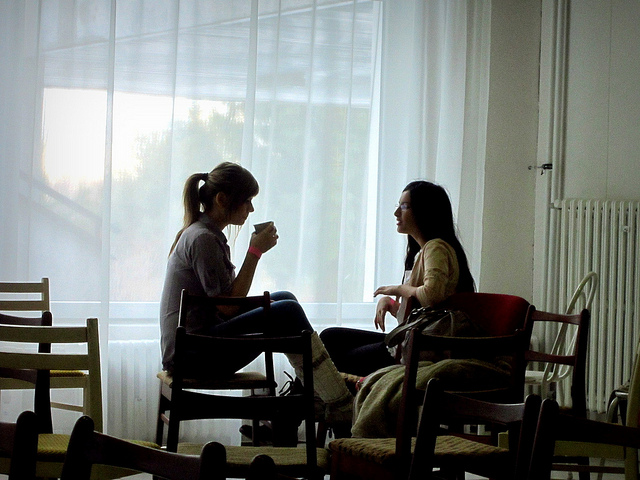News
Bridging Manila and Tokyo thru language

This is how education advocate Philip Sanvictores describes his craft, which he has been promoting Japanese language education and training in the Philippines, prompting a boost in Japanese-language student enrolment rates in the country. (Photo by Matus Laslofi/Flickr, CC BY-SA 2.0)
MANILA — “Nothing happens by accident.”
This is how education advocate Philip Sanvictores describes his craft, which he has been promoting Japanese language education and training in the Philippines, prompting a boost in Japanese-language student enrolment rates in the country.
Sanvictores, president of the Nihongo Center Foundation (NCF) and Trustee of the Philippine Federation of Japan Alumni (PHILFEJA), was awarded by Japan’s national decoration, The Order of the Rising Sun, Gold Rays with Rosette at a conferment ceremony at the Japanese Ambassador’s residence in Makati on February 9.
As head of NCF, he had worked tirelessly and continues to craft initiatives for the promotion and advancement of Nihonggo education in the Philippines.
This resulted in a significant increase in Japanese-language student enrolment rates and graduation, as well as a steady rise in the number of capable Filipino teachers of Nihongo.
When asked what his track would have been if not Japanese language, he said it would be very difficult to choose others given that his family is “very rooted” on Japanese culture.
“If it was not Japan, I don’t know what because our life has been ordained or destined,” he said in an interview.
Sanvictores went to Japan in 1981 to study Nihonggo. “At that time, I don’t really know where I would use the language but I started to use it in business.”
In 1990s, Ambassador Jose Laurel III partnered with Sanvictores to put up a Japanese language school with a curriculum similar to what he took in Japan, an intensive 10-month course.
“He asked me to make an application with the Japan Foundation for a grant to dispatch a Nihonggo teacher,” he narrated.
The problem, however, was at that time, there was no school to house the teachers.
Due to Laurel’s “keen interest” to put up the program in the Philippines and further bridge Tokyo and Manila, a four-storey school at the University belt near the Far Eastern University and the University of the East was established.
Sanvictores said through those years, their students had been steady at 2,000 every year.
Referring to Filipinos enrolling to the language program, he said there are “statistics of growth” which is impressive, however, the number is far compared other states.
If compared to other countries like Vietnam, the awardee said “there are so many Vietnamese studying the Japanese language.”
“To go abroad to study, we speak English, we go to countries where English is taught, [meaning] you need not to study further. In Japan, you have to learn Nihonggo,” he pointed out. “I hope more Filipinos would learn Nihonggo in the Philippines.”
Raise Filipino Nihonggo Teachers
Since there is also lack of teachers focused on teaching the Japanese language in the Philippines, the practical way to outdo this setback is to “raise” more Nihonggo instructors that is Filipino.
“Our target now, because we only have 22 teachers, is to increase it double at short term and more than a hundred in the future,” he said.
“We want to give young Filipinos who want to teach Nihonggo the career path. We train them, we teach them how to teach Nihonggo as a foreign language then we send them to Japan, of course this requires a lot of money but this is something that we are growing,” he added.
For Sanvictores, ties between Japan and the Philippine are indeed growing with partnerships done government-to-government and business-to-business.
Though done through a “small way,” he said their sector is gaining footing to boost the people-to-people ties of the two nations.
“Language, if you speak Nihonggo and talk to a Japanese very well you get to understand each others, you speak both with English, you become better friends, language is very important,” he said. “We need to learn foreign languages.”
“More and more Filipinos should not only have one language specialization, we have to have a third or fourth language, that’s very important,” he said.
Sanvictores had actively immersed himself in activities of the Philippines-Japan Society, notably the establishment of the Philippine Institute of Japanese Language & Culture in 1991 and the NCF in 1997.
In January 2016, during the state visit to the Philippines of Their Majesties, the Emperor and Empress of Japan, Sanvictores played a key role in organizing the meeting of Filipino former students to Japan and Japanese government scholars with Their Majesties, which was an integral part of the visit.





















